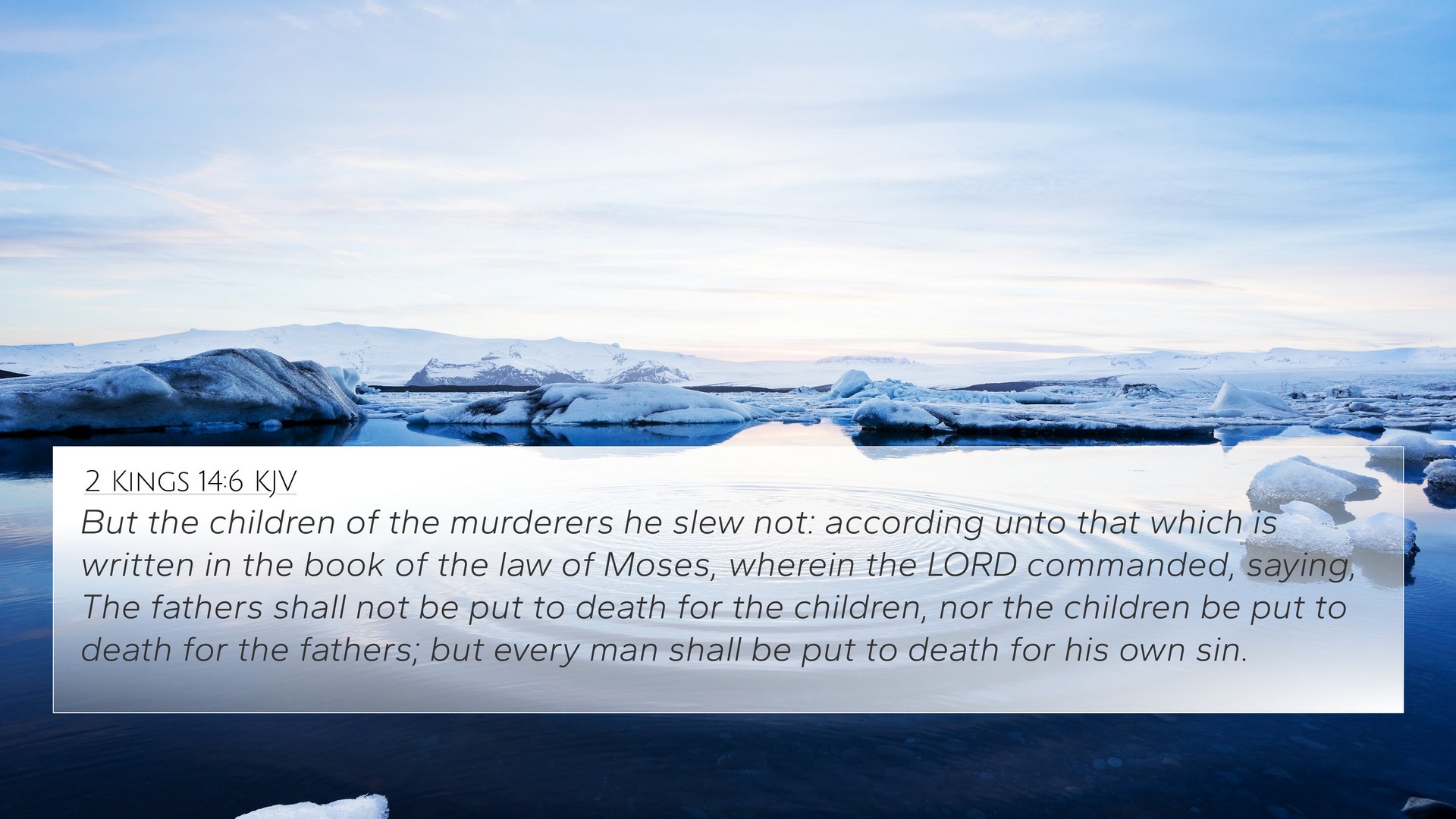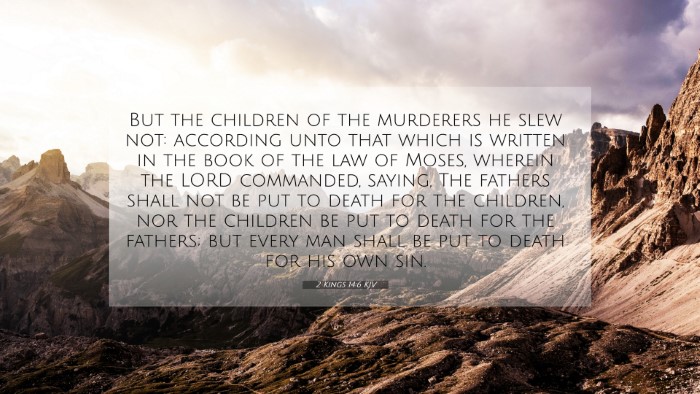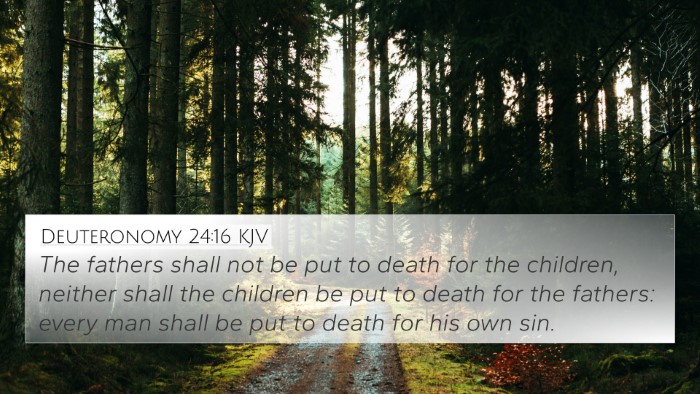Understanding 2 Kings 14:6
Bible Verse: 2 Kings 14:6 - "But the children of the murderers he slew not: according unto that which is written in the book of the law of Moses, wherein the Lord commanded, saying, The fathers shall not be put to death for the children, nor the children be put to death for the fathers: but every man shall be put to death for his own sin."
Meaning and Explanation
This verse highlights the principle of individual responsibility and justice, as established in the Mosaic Law. The actions of King Amaziah, in sparing the children of those who had actively participated in the murder of his father, point towards a significant Biblical principle regarding justice. Below is a summary of insights derived from notable public domain commentaries.
- Matthew Henry:
Henry emphasizes the mercy displayed by King Amaziah, and he takes particular note of the adherence to the law of Moses as a guiding principle. He suggests that Amaziah's decision reflects a commitment to justice and righteousness that aligns with the teachings of the Torah.
- Albert Barnes:
Barnes expands on the implications of divine justice, stating that God judges each individual based on their own deeds, ensuring that children are not punished for the sins of their parents. This reinforces the biblical theme of personal responsibility before God.
- Adam Clarke:
Clarke notes that the act of sparing the children serves as a reflection of grace and mercy. This act further underlines the idea that every individual has a distinct relationship with God and is accountable for their own choices.
Bible Cross-References
This verse relates to several key themes present in the Scriptures concerning justice, mercy, and individual accountability. Here are some relevant cross-references:
- Deuteronomy 24:16: "The fathers shall not be put to death for the children, neither shall the children be put to death for the fathers: every man shall be put to death for his own sin."
- Ezekiel 18:20: "The soul that sinneth, it shall die: the son shall not bear the iniquity of the father, neither shall the father bear the iniquity of the son."
- Galatians 6:5: "For every man shall bear his own burden."
- Romans 14:12: "So then every one of us shall give account of himself to God."
- Exodus 20:5: "Thou shalt not bow down thyself to them, nor serve them: for I the Lord thy God am a jealous God, visiting the iniquity of the fathers upon the children unto the third and fourth generation of them that hate me."
- Matthew 12:36: "But I say unto you, That every idle word that men shall speak, they shall give account thereof in the day of judgment."
- John 9:2-3: "And his disciples asked him, saying, Master, who did sin, this man, or his parents, that he was born blind? Jesus answered, Neither hath this man sinned, nor his parents: but that the works of God should be made manifest in him."
Connections and Themes
This verse serves as a key link in the broader themes of justice and grace throughout the Bible. Notably, it connects to the themes of mercy and the nature of sin as explored in both the Old and New Testaments. For example, when linking this verse with the teachings of Christ found in Matthew and John, we can explore how the New Testament reinforces and expands these Old Testament principles of justice and personal accountability.
Key Connections:
- The idea of personal accountability is a recurring theme from the Law (Old Testament) through the teachings of Jesus (New Testament).
- A major dialogue exists in the Gospels regarding sin, mercy, and judgment, emphasizing that each individual stands before God based on their own actions.
- The narrative in 2 Kings highlights the balance between justice and mercy, which is further illustrated in Jesus' teachings about forgiveness and mercy for others.
Thematic Reflections
The verse invites reflection on the implications of justice and mercy in our lives. As believers, understanding that we are accountable for our actions encourages us to seek a deeper relationship with God and to embody the principles of love, mercy, and personal responsibility as illustrated throughout the Scriptures.
This analysis emphasizes the importance of cross-referencing Biblical texts and understanding the connections between Bible verses to grasp the overarching narrative and principles in Scripture.
Tools for Further Study
For those interested in exploring cross-references and thematic connections further, consider utilizing tools like:
- Bible Concordance
- Cross-Reference Bible Study Guides
- Comprehensive Bible Cross-Reference Materials
- Online Bible Study Resources
- Academic Journals on Biblical Studies
Engaging in cross-referencing Bible study methods can enhance understanding and create a more profound appreciation of the intricate relationships within Scripture.






